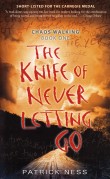 This post is partly inspired by Sheryl Sandberg’s Lean In: Women, Work, and the Will to Lead, which I found incredibly insightful. I don’t read a lot of “business” books, but I would definitely recommend this to both men and women. It highlights a number of social biases found in both the home and the workplace that can hold women back and in some cases cause women to hold themselves back.
This post is partly inspired by Sheryl Sandberg’s Lean In: Women, Work, and the Will to Lead, which I found incredibly insightful. I don’t read a lot of “business” books, but I would definitely recommend this to both men and women. It highlights a number of social biases found in both the home and the workplace that can hold women back and in some cases cause women to hold themselves back.
These biases are formed at young ages. My whole life, I was told by my parents and teachers that I could do anything I wanted, that boys and girls were equal, etc. But many of the movies and books I grew up with told a different story. Snow White, Cinderella, and Sleeping Beauty don’t get to have adventures of their own. Their “adventures” involve being resented for their beauty, dreaming about a man coming to rescue them, and an awful lot of housework. Even Mulan and Jasmine, who were stronger female characters, have stories that center around love and marriage — Jasmine runs away so she won’t be forced to marry someone she doesn’t love, and Mulan has to disguise herself as a boy in order to bring honor to her family. The boys get to have all the fun, while the girls’ roles are solely and solidly domestic. Is it any wonder, then, that in my childhood games I always imagined myself as a boy dog, a boy dragon, a boy everything? I didn’t want to be a boy, I just wanted to go on adventures; and the boys went on all the real adventures.
These problems persisted beyond “happily ever after.” Even a girl who had a mind of her own, like Mulan, readily filled the traditional domestic role as soon as she fell in love. These stories taught girls that they were supposed to want to get married and raise children and give up any other dreams that conflicted with those things. What if Mulan liked being a soldier? What if the hypothetical princess wanted to travel the world or hunt pirates to protect the borders? For that matter, what if the prince wanted to teach his kids how to read or ride horses instead of spending his whole day in council meetings?
I think this is why I connected with Tamora Pierce’s protagonists so strongly. Alanna (from Pierce’s Song of the Lioness series) was my role model because she wanted to go on adventures and train as a knight, so she did it even though it went against convention. And yes, she was disguised as a boy at first, but she also made friends who accepted her for who she was, and throughout the series she grew to accept herself as both a woman and a knight. But most importantly, she didn’t stop having adventures when she fell in love. In fact (spoiler alert) she chose to end her relationship with the prince in part because she didn’t want to be a queen — and she chose to marry the man who would not only allow but encourage her to continue going on quests as a knight.
Our girls need more stories like these. And our boys need more examples of men who choose to spend more time inside the home — and are celebrated, not criticized, for it. We’ve come a long way, but we still have a long way to go. For ideas of how to help, check out the Lean In organization and the We Need Diverse Books campaign. Writers, let’s tell stories that encourage our readers to pursue their dreams, whatever those dreams are. Librarians, publishers, and readers, let’s demand more stories that challenge stereotypes and show today’s children that they don’t have to match their ambitions to gender norms. I want books with female engineers like Darla in Mike Mullin’s Ashfall trilogy, and books with men who are deeply invested in their families like Day in Marie Lu’s Legend trilogy. (And is it telling that I can’t think of a single book or movie in any genre that has the father working primarily in the home unless he’s either gay or a single parent?*)
What books, movies, or other media have you seen lately that defies gender norms? Please share in the comments.
*After three days of pondering this, I finally came up with Neal and Georgie from Rainbow Rowell’s Landline, though that isn’t a book for kids, nor is it being marketed heavily toward men.


